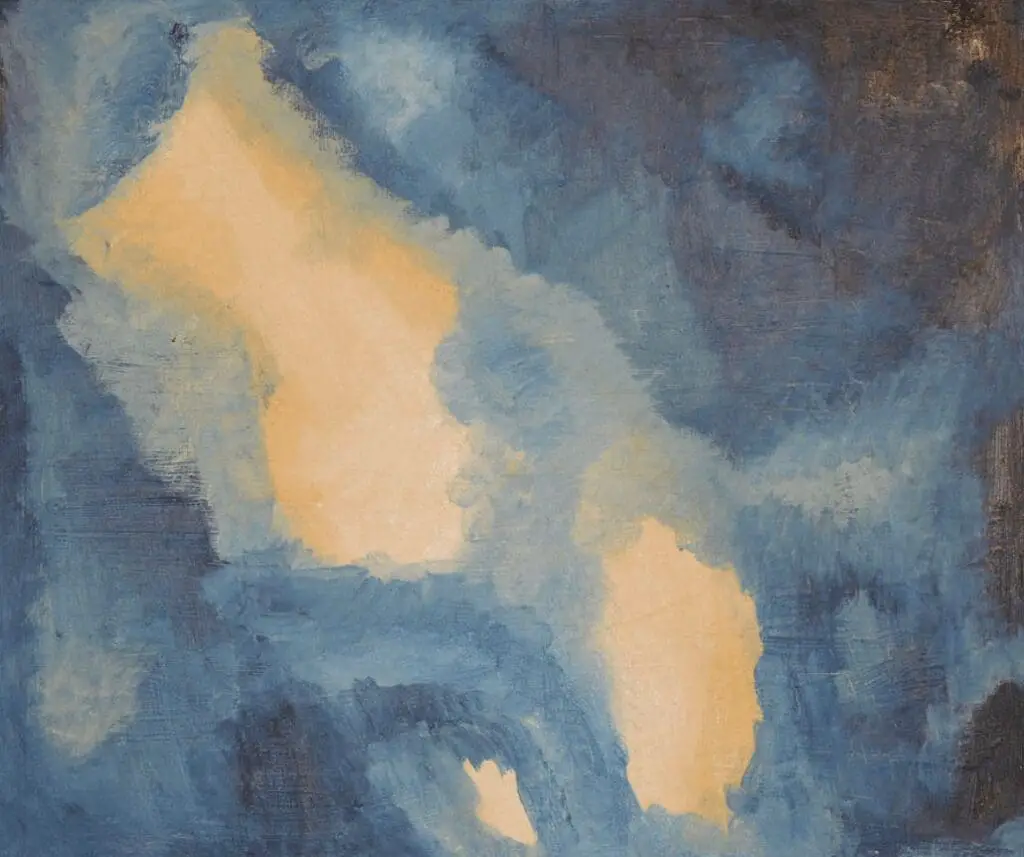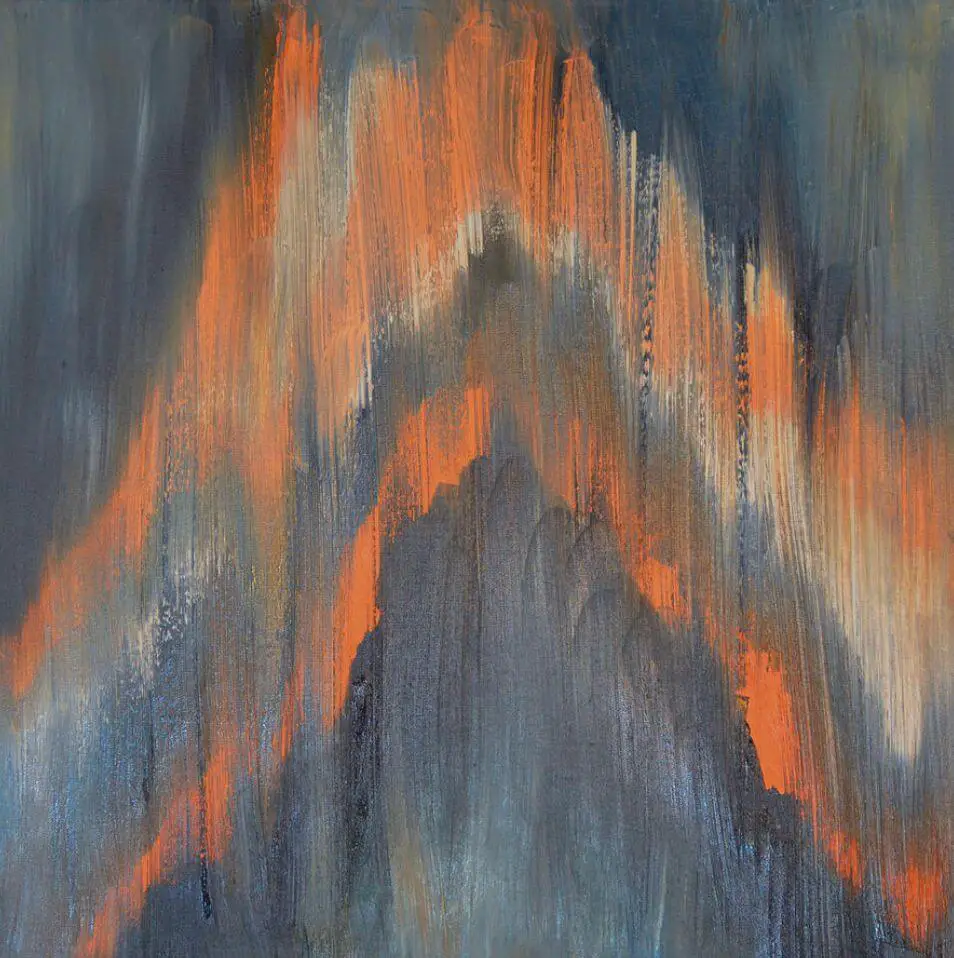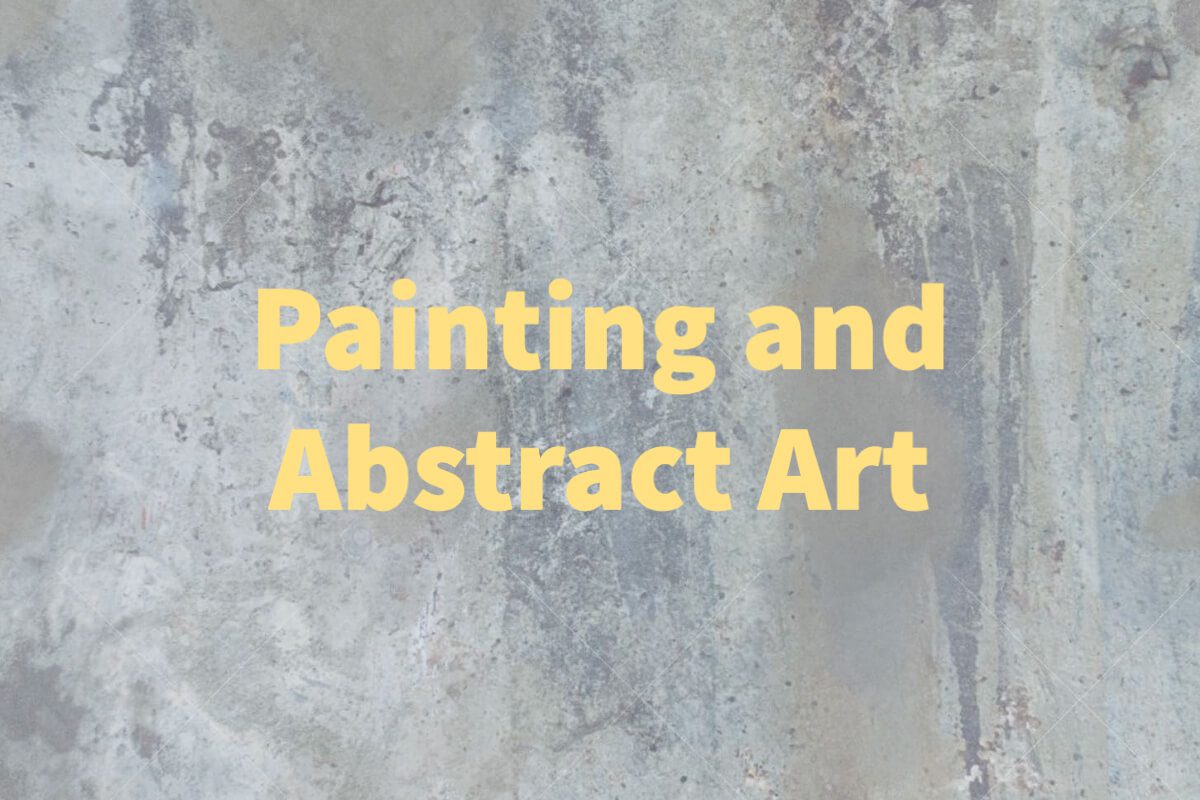Many people look at abstract art and wonder if anyone can be an Abstract artist. In other words, do you need a background or foundation in painting, drawing, and art education to create great abstract art?
To be a great abstract artist, you need talent and an understanding of painting. Painting can be a technical skill artists spend a lifetime perfecting through art education and practice. Great abstract artists have had intensive training in painting, drawing, composition, and color theory.
Table of Contents
- The Reality of Becoming an Abstract Artist: Talent and Training Essentials
- Frequently Asked Questions
- Related Content
The Reality of Becoming an Abstract Artist: Talent and Training Essentials
The realm of abstract art often raises the question: is it possible for anyone, regardless of their artistic background, to become an abstract artist?
This inquiry delves into the necessity of foundational skills in painting and drawing, as well as a structured art education, for the creation of exceptional abstract art. While abstract art might seem freeform and intuitive, becoming a distinguished conceptual artist typically involves innate talent and a deep understanding of painting techniques.
This includes extensive painting, drawing, composition, and color theory training honed over years of dedicated practice and education.

All great abstract artists have a foundation in painting, drawing, composition, and color theory; when an artist has this kind of artistic foundation, it shows in how they execute their artwork. Having a creative foundation in drawing, composition, and color theory is essential for every artist and helps them be better painters.
No rule says that an Abstract artist must be talented in painting or even be able to draw. Still, if you look at all the great abstract artists, you will find a few things in common – they all have a foundation in drawing, composition, and color theory and know-how to paint a variety of subject matters.
Abstract Art And Painting Talent
We believe a painting talent is required to create great abstract art. Creating great abstract art can be challenging to implement – it is just not a matter of tossing paint around a room. Great Abstract art is a highly technical and challenging art to implement correctly.
One of the most important aspects of having a natural talent for painting is that talent may help you stick to the painting and continue improving your painting and art skills. The consistency to build your art skills will help you enhance your painting talent and your fundamental art skills.
All Great Abstract Artists Have a Foundation In Art
All the great abstract artists had a foundation of the art basics such as painting, drawing, composition, and color theory. Their artistic foundation comes out very clearly in their artwork.
Here are some reasons why being able to paint and having a talent for painting is essential when creating Abstract art:
- Know How To Use and Mix Colors – An Abstract artist needs to understand how to use color. Color can convey a message or meaning of your art. Mixing the colors you need in your painting is essential to get your art’s message.
- Technical Aspects of Painting – Someone who has not painted may think it is easy to take a brush, dip it in paint, and put it on the canvas. The truth is that there are many technical aspects of art and painting. Everything from how you prepare the canvas or other materials to the paints you use or how you clean your brushes. Painting is a technical skill.
- Creative ideas – Creative ideas can take time. For some people, they may come more naturally than others. Others may need to have to work to find creative ideas. Understanding what is a good or bad creative idea or how it should be composed takes skill, experience, and learning.
- Practice builds painting skills – Like many other art forms, the more you paint, the better you will become at painting. If you do not have a talent, keep painting and the skills; usually, the talent will come. Practice can help you build your talent and art skills.
- Talent helps you stick with it – If you feel you have a talent for painting or some parts of painting seem easy to you, then there is a chance you will stick with your art and continue to produce great art.
With art education, you can learn many skills that will enhance your natural talent. The reality is that painting, drawing, composing, and color theory will help you become a great Abstract artist.
Painting is not the only talent you need to become a great abstract artist; you should also have a background and foundation in drawing, composition, and color theory.
Abstract Art and Drawing
To be able to produce great abstract art, it is crucial to have a foundation in drawing. So, many of the beginning or introductory art courses begin with a drawing class. Drawing is the foundation of art.

The world’s greatest Abstract artists started by taking many basic art classes and spent time gaining all the art fundamentals. You can learn more by reading Abstract Painting Skills And An Artist’s Drawing Ability to discover more about some of the world’s most significant abstract artists and their artistic training.
Abstract Artists And Their Drawing Skills Explored
Here are a few things we can learn from the great Abstract artists and their drawing skills and training:
- Artistic Training – All the great Abstract artists had basic training and took art classes. With technology today, you can do some art courses via technology or attend a class in your area. You can join groups, forums, and others that can help you with your art.
- Drawing Skills – All the great Abstract artists also had excellent drawing skills. They were able to draw a variety of subject matter. Drawing is a foundational skill for any artist; all the great abstract artists could draw because of their intensive art training and education.
Even if you look at an Abstract artist’s painting and feel like the painter was splashing or dripping paint, the truth is that a lot of thought went into that painting; the artist creating that painting had excellent drawing skills.
Drawing and creating great abstract art is not easy; I have found it a lot more complex than many other kinds of art. Abstract art requires that an artist knows the basics of drawing to create great abstract art.
When an artist is trained in painting, drawing, and other fundamental art skills, their basic skills will always show. They have the painting and drawing skills and the training to execute the art well.
Abstract Art and Composition
Another area that Abstract artists understand through their art training is composition. For any artist to produce good artwork, they must understand the composition. Like painting and drawing, art composition is also essential to art education.
Composition is crucial as it is how different elements of the artwork are all combined. It is about how the critical aspects of the painting are all arranged together in the art.
Composition is one of those artistic skills that are difficult for any visual artist to master, but at the same time, it can make all the difference in the world for the outcome of the art. Many of the basic rules of composition are as varied as many artists themselves; this is especially true in abstract art.
Different types of art may have different rules of composition. For example, the ancient Greeks believed art should be as perfect as possible, so art, the canvas, would be divided into eight equal segments to ensure a proper balance for their designs. Many people say that good composition should be about balance.
However, many of the cubist and abstract artists redefined or stretched the rules of composition. They changed many art composition rules to make way for new ones.
The Abstract artist Jackson Pollock threw many basic concepts or rules of art composition out the window in his art. Since Jackson Pollock had all the artistic foundations of drawing, design, and color theory, we can argue that he understood these basic art concepts so he could throw them out.
Abstract Art and Color Theory
Another area where you can see an artist’s training is color theory. Color theory is about understanding the color wheel and knowing primary, secondary, and tertiary colors.
Understanding color is at the core of any artwork or design. But not just understanding color but knowing how to see color, look at color tints, and learn how to mix the correct color.
You need to understand color theory; mixing colors is not easy. Many artists can only mix a color once, but it is hard for them to match and mix the same color a 2nd or 3rd time. Combining the exact color multiple times takes a lot of skill and a trained eye for color mixing.
There are so many variations that a color can have for the shade, tints, and other aspects.
Color theory is not just about mixing colors but also about understanding which colors work well with other colors and why. Color theory is about fully understanding color to convey your message as an artist.
Color theory is essential for all artists to understand. Color theory is about an artist’s ability to mix and match colors and use colors to convey the message they want to share.
Like painting, drawing, and composition, color theory is essential for an artist’s foundation.
An abstract artist’s ability to paint is not just about their drawing ability but also encompasses other fundamentals of art education, such as their ability to understand composition and color theory.
A talent for painting is excellent, but it is only one aspect to help you create great abstract art. To consistently produce great abstract art, you must understand art’s foundations as painting, drawing, composition, and color theory.
Frequently Asked Questions
Can anyone become an abstract artist without prior painting experience?
While prior painting experience can be beneficial, abstract art often emphasizes self-expression, allowing individuals without formal training to explore and create.
Is talent a prerequisite for being a successful abstract artist?
Talent can enhance the creative process, but abstract art is known for its subjective nature, allowing individuals to express themselves freely, regardless of perceived talent.
Do you need a formal art education to excel in abstract art?
While formal art education can provide valuable skills, many successful abstract artists have emerged from various backgrounds, experimenting and developing their own unique styles.
Can someone be an abstract artist without knowing traditional painting techniques?
Abstract art encourages experimentation, and artists may develop unconventional techniques. While knowledge of traditional techniques can be useful, it’s not a strict requirement for creating impactful abstract pieces.
Is there a specific set of rules to follow in abstract art, or is it more intuitive?
Abstract art is often intuitive and personal, allowing artists to break traditional rules. There are no strict guidelines, offering creative freedom to individuals regardless of their formal training.
Do you need a deep understanding of color theory to create compelling abstract art?
While color theory knowledge can enhance abstract art, many artists explore color intuitively. Experimenting with color combinations and trusting one’s instincts can lead to captivating abstract compositions.
Can abstract art be a form of self-expression for those who feel they lack artistic talent?
Abstract art is a powerful avenue for self-expression, providing a platform for individuals to convey emotions and ideas without adhering to traditional standards of artistic talent.
Is there a difference in the perception of abstract art created by someone with formal training versus someone without?
The appreciation of abstract art is subjective, and individuals may resonate with pieces regardless of the artist’s background. Formal training can provide technical skills, but personal interpretation plays a significant role in the viewer’s experience.
Can abstract art be a therapeutic outlet for those with no artistic background?
Abstract art is widely recognized for its therapeutic benefits. Individuals without artistic backgrounds can use abstract art as a means of self-discovery, stress relief, and emotional expression.
Are there resources or techniques that can help individuals explore abstract art without formal training?
Numerous resources, including online tutorials, workshops, and art communities, can help individuals delve into abstract art. Experimentation, an open mind, and a willingness to explore one’s creativity are key elements in the journey of becoming an abstract artist.
Anita Louise Art is dedicated to art education, great artists, and inspiring others to find and create their art. We love art that uplifts and inspires. #ArtToMakeYouSmile! #ArtToMakeYouHappy!
If you want to see any of my art, you can find out more by clicking here. If you are interested in what inspires me and my paintings, you can discover more by clicking here.
We have a free newsletter and would love you to be part of our community; you can subscribe to the newsletter by clicking here. If you have any questions, I would be happy to talk to you. You can reach me, Anita, by clicking here.
Subscribe to our Anita Louise Art YouTube Channel filled with great videos and information by clicking here.
Join us for our podcast “5 Minutes With Art.” Spend just 5 minutes a week with us to discover and learn about great art and artists. You can find out more about our podcast by clicking here.
Related Content
Beginner Artists Guide to the Color Wheel and Paint Colors
It is important for beginning artists to have some knowledge of the color wheel. There are primary, secondary, and tertiary colors, plus warm and cool colors and tints, shades, and tones for each color. The color wheel has different complementary and other color combination schemes that, through your combining of the colors, will give different artistic and design effects.
You can discover more at Beginner Artists Guide to the Color Wheel and Paint Colors by clicking here,
Why Can’t Art Be Defined?
Art can be challenging to define as art has no set standards or manual. Art can also be anything that the artist tells us is art. Art critics also use their knowledge and experience to judge what they see as great art or bad art; art critics try to define art to know what they are looking at.
You can learn more at Why Can’t Art Be Defined? by clicking here.

